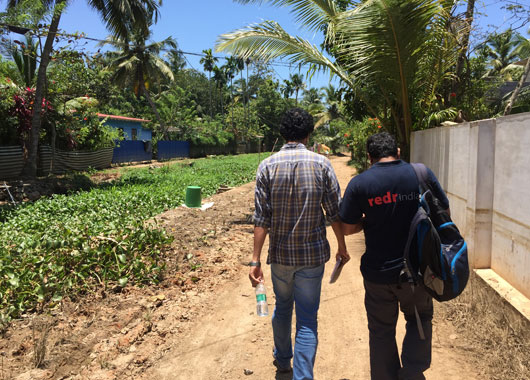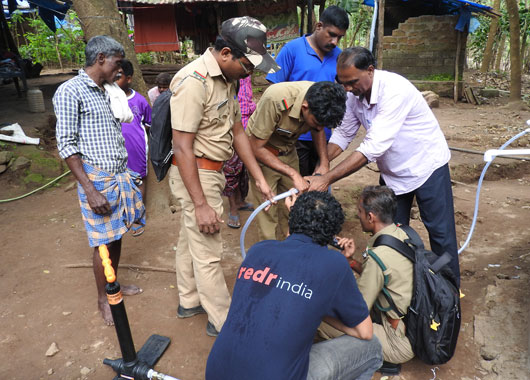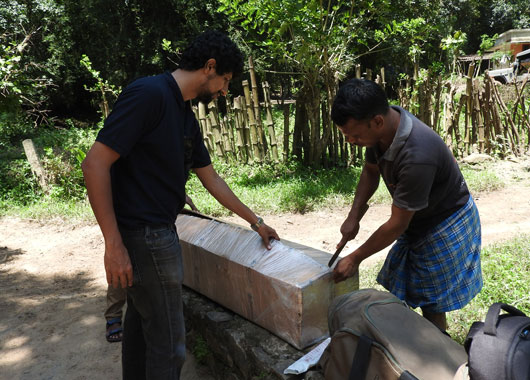
Field Story By Paul George, Former Project Coordinator at RedR India
When I moved back to Kerala in South India after my higher studies in 2018, the last thing I expected to be doing was responding to floods in my home state. Indeed, I had never considered the possibility of my career as a humanitarian professional bringing me home. The kind of catastrophic flooding experienced in Kerala in August 2018 was last seen nearly 100 years ago, alive only in archives and memories of the very elderly. As more than a million were displaced across the length of the narrow coastal strip that is Kerala, this time the disaster had struck home for me, affecting friends and family. My experience working with RedR India as part of its Kerala response has therefore been an intensely personal one.
Responding to the demand of safe drinking water that had emerged as a critical issue after the floods, this experience gave me the opportunity to see my state and its people like I never could have as a private individual. Travelling across the different flood affected districts I witnessed the wide range of problems faced by communities who had never seen a flood in their entire lives and their ways of coping with it. Rescue, food, water and sanitation emerged as serious problems in the initial days which was met with a tidal wave of volunteerism and resilience.
The author of this story Paul George was RedR India’s one of the Project Coordinators from Kerala. He has worked with RedR’s Flood Response Project in the state.
In Thrissur district, we were focused on providing the most vulnerable and marginalized of the flood-affected communities with safe drinking water. Working with the forest department we identified tribal communities living within the Chalakudy forest range who had been badly affected by the flooding. Situated deep within the forest range on the banks of the now benign looking river, some 30 households in Karikkadavu colony had to flee to relief camps after the release of water from an upstream dam led to flooding. Raging river water had entered their homesteads; while their homes were structurally safe, both the wells which the community relied upon for drinking water were contaminated.
We reached the community 3 weeks after the flooding subsided. While people had returned to their village and cleaned their homes, drinking water remained a serious challenge for these households. Even though the water in the wells looked clean with little or no particles in it, the families in Karikkadavu colony did not drink the same as they realized that the water would still be contaminated by waste from toilets and animals nearby.


With well water is used only for domestic uses other than drinking, families were forced to resort to a long-forgotten traditional method for sourcing water. Shallow trenches/pits were dug on the sandy parts of the riverbank from which a limited quantity of water was collected for drinking and cooking.
This method relying on the natural filtration quality of the soil and the high-water table gave these families access to drinking water but in a limited quantity. This water was also at high risk of contamination since the pits were exposed to the elements. This was, therefore, a risky coping strategy albeit the best option left with them. Their awareness of the risks and consequences of contamination from toilets saved them from a certain disease. Meanwhile, their ability to obtain clean water from the river was an indication of an enormous ability to cope. The high level of resources, awareness and hygiene amongst all households in Kerala- a long term impact of development was instrumental in the prevention of an outbreak of diarrheal diseases after the floods. These floods are therefore an example of how the gains of development work accrued over decades can be a bulwark against a catastrophic incident.
Responding to these floods with RedR India helped me understand my state better whilst deepening my knowledge of emergency response, WaSH and community resilience.

